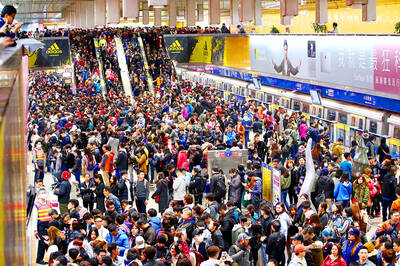Singapore’s Supreme Court has ordered OCBC Bank to transfer the US$2.1 million in a bank account belonging to Wu Shih-tsai (吳思材), one of the key suspects in the Papua New Guinea diplomatic fraud scandal.
Taiwan is attempting to retrieve US$29.8 million from Wu and Ching Chi-ju (金紀玖), the other key suspect, through Singaporean courts.
The news was confirmed by Xie Kunyao (謝坤耀), the lawyer handling the government’s case in Singapore.
JUST A FRACTION
Although the sum is only a fraction of the US$29.8 million and the accumulated interest of US$1.07, Singaporean law allows Taiwan to pursue the claim for a period of 12 years after the judgment.
The Ministry of Foreign Affairs filed a complaint against Ching and Wu with Singapore’s Supreme Court last year, claiming that the two had used money for private purposes that the ministry had placed in their OCBC bank accounts to be used in connection with the establishment of diplomatic relations with Papua New Guinea.
Wu, who is in prison after having been sentenced to two years and four months for forging documents and making malicious accusations, has not commented on the judgment.
As Wu did not respond to the charges against him, the Taiwanese government’s lawyer in Singapore in October last year obtained a default judgment from the Supreme Court allowing Taiwan to claim the US$29.8 million.
DEMAND
The government is demanding that Wu and Ching return the full sum, jointly or individually, depending on who of the pair has the resources to do so.
Ching has hired a lawyer to argue his case at the Supreme Court and says he spent the funds paid to him by the Ministry of Foreign Affairs on working for diplomatic relations with Papua New Guinea.
The Supreme Court plans to review his defense early next year.

People can take the Taipei MRT free of charge if they access it at Nanjing Sanmin Station or Taipei Arena Station on the Green Line between 12am and 6am on Jan. 1, the Taipei Department of Transportation said on Friday, outlining its plans to ease crowding during New Year’s events in the capital. More than 200,000 people are expected to attend New Year’s Eve events in Taipei, with singer A-mei (張惠妹) performing at the Taipei Dome and the city government’s New Year’s Eve party at Taipei City Hall Plaza, the department said. As people have tended to use the MRT’s Blue or

Civil society groups yesterday protested outside the Legislative Yuan, decrying Chinese Nationalist Party (KMT) efforts to pass three major bills that they said would seriously harm Taiwan’s democracy, and called to oust KMT caucus whip Fu Kun-chi (傅?萁). It was the second night of the three-day “Bluebird wintertime action” protests in Taipei, with organizers announcing that 8,000 people attended. Organized by Taiwan Citizen Front, the Economic Democracy Union (EDU) and a coalition of civil groups, about 6,000 people began a demonstration in front of KMT party headquarters in Taipei on Wednesday, organizers said. For the third day, the organizers asked people to assemble

Taipei is participating in Osaka’s Festival of Lights this year, with a 3m-tall bubble tea light installation symbolizing Taiwan’s bubble tea culture. The installation is designed as a bubble tea cup and features illustrations of Taipei’s iconic landmarks, such as Taipei 101, the Red House and North Gate, as well as soup dumplings and the matchmaking deity the Old Man Under the Moon (月下老人), affectionately known as Yue Lao (月老). Taipei and Osaka have collaborated closely on tourism and culture since Taipei first participated in the festival in 2018, the Taipei City Department of Information and Tourism said. In February, Osaka represented

Taiwanese professional baseball should update sports stadiums and boost engagement to enhance fans’ experience, Chinese Professional Baseball League (CPBL) commissioner Tsai Chi-chang (蔡其昌) told the Liberty Times (sister paper of the Taipei Times) in an interview on Friday. The league has urged Farglory Group and the Taipei City Government to improve the Taipei Dome’s outdated equipment, including relatively rudimentary television and sound systems, and poor technology, he said. The Tokyo Dome has markedly better television and sound systems, despite being 30 years old, because its managers continually upgraded its equipment, Tsai said. In contrast, the Taipei Dome lacked even a room for referees